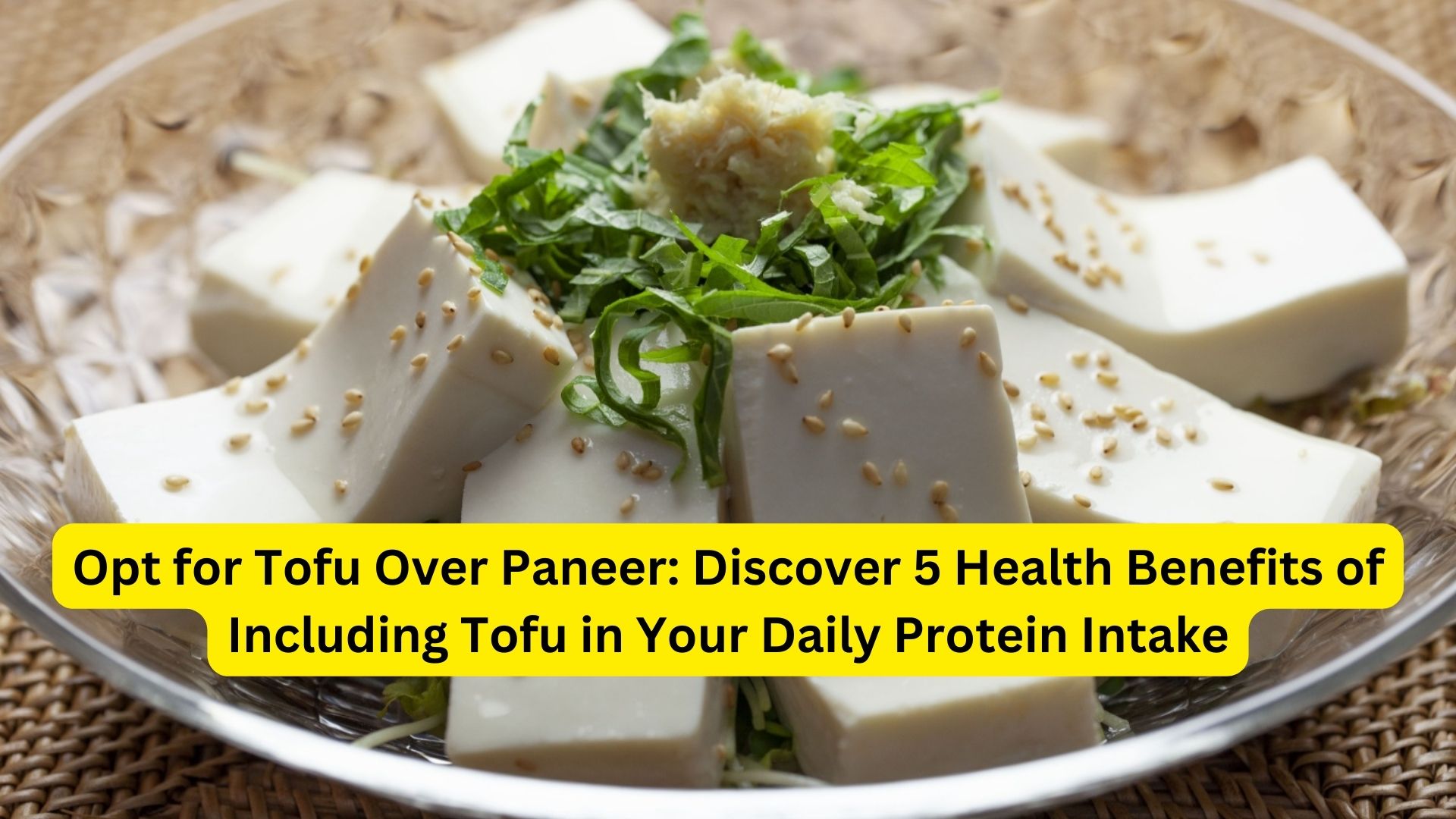
Protein plays a vital role in ensuring the optimal functioning of the body. Experiencing persistent fatigue or noticing thinning hair? These could be indicators of a potential protein deficiency. Elevating your protein intake can be achieved through dietary adjustments, and monitoring nutritional intake is crucial for overall well-being. Beyond the conventional choice of paneer, tofu is gaining popularity as an excellent addition to a high-protein diet. Originating from China around 2000 years ago, tofu, a soy-based food prepared from condensed soy milk, is recognized for its protein richness and numerous health benefits.
Health Benefits of Tofu:
- Nutritional Profile: Tofu stands out as a valuable plant-based protein source, containing all essential amino acids required by the body. Additionally, it is low in saturated fat and devoid of cholesterol, making it a heart-healthy option. Tofu also supplies essential nutrients like iron, calcium, magnesium, and phosphorus.
- Weight Management: With its low calorie content and high protein concentration, tofu promotes a sense of fullness and satiety. Incorporating tofu into your meals can contribute to weight management by curbing overall calorie intake, facilitating healthy weight loss or maintenance.
- Heart Health: Tofu boasts cardioprotective properties due to its low saturated fat and cholesterol-free composition. The presence of unsaturated fats, including polyunsaturated fatty acids like omega-3 and omega-6, has been linked to a reduced risk of heart disease.
- Bone Health: An excellent source of calcium, tofu supports the maintenance of strong and healthy bones. The combination of calcium with minerals like magnesium and phosphorus in tofu helps reduce the risk of osteoporosis.
- Hormone Balance: Tofu’s richness in isoflavones, plant compounds with estrogen-like properties, aids in regulating hormone levels. This may potentially lower the risk of hormone-related conditions such as breast and prostate cancers.
- Digestive Health: Tofu’s substantial dietary fiber content supports healthy digestion, promoting regular bowel movements, preventing constipation, and fostering a robust gut microbiome.
Distinguishing Tofu from Paneer:
Paneer, a fresh cheese originating from the Indian subcontinent, is produced by curdling milk with acidic ingredients like lemon juice or vinegar. In contrast, tofu, a soy-based product originating from China, is crafted by coagulating soy milk and pressing the resulting curds into blocks. Paneer has a firm, slightly crumbly texture, maintaining its shape without melting easily when cooked. Tofu, on the other hand, boasts a softer and more delicate texture.
Tofu’s versatility shines as it can be incorporated into various cuisines and dishes. Whether stir-fried, grilled, baked, or included in soups, salads, and desserts, tofu adapts well to diverse cooking methods.
It’s crucial to note that paneer is a dairy product and may not be suitable for individuals with lactose intolerance or dairy allergies. Tofu, being soy-based, provides a suitable alternative for those with dietary restrictions. Ultimately, the choice between paneer and tofu depends on personal preference, dietary needs, and culinary applications.
Also Read
Eggs vs. Paneer: Comparing Protein Sources for Optimal Nutrition

One thought on “Opt for Tofu Over Paneer: Discover 5 Health Benefits of Including Tofu in Your Daily Protein Intake”